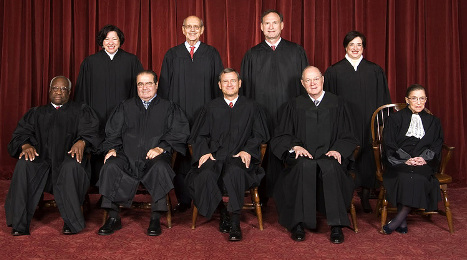What law enforcement considers to be deceptive advertising associated in part with vehicle financing is continuing to hit New York dealerships in the pocketbook.
New York attorney general Eric Schneiderman announced two separate settlements on Tuesday involving 23 franchised dealerships and financial penalties surpassing $340,000.
The larger of the two agreements is requiring 22 dealerships in Nassau and Suffolk counties to pay $310,000 in restitution and penalties to resolve false advertising claims. Schneiderman said the dealerships, all affiliated with Atlantic Automotive Group based in West Islip, N.Y., “persistently defrauded” consumers with “misleading” promotions and “fraudulent” sales tactics.
In total, the attorney general’s Nassau and Suffolk regional offices received more than 250 complaints regarding the dealerships and their advertising and sales practices.
Schneiderman indicated Atlantic Automotive Group generated advertisements to be mailed to thousands of Nassau and Suffolk County consumers, with approximately 500,000 promotional items in total distributed by direct mail. The advertisements contained a scratch off game card, a pull tab game card, or a “Triple Diamond” game card where consumers could win a cash prize, a free vehicle, a flat-screen television or an Apple iPad.
A winning ticket contained three like symbols but it did not explain what, if anything, the consumer won. Instead, consumers were instructed to bring the game card to the dealership during event times in order to claim their prize.
“The game cards were deceptive and had the capacity to mislead consumers to believe that they were guaranteed winners of valuable prizes. In fact, virtually all of the consumers did not win a prize at all,” Schneiderman’s office said.
The Empire State attorney general declared Atlantic Automotive Group also misled consumers through various other deceptive practices by:
— Publishing print advertisements which contained misleading or illegal features in violation of the attorney general’s auto advertising guidelines and a previous assurance of discontinuance entered into with two dealerships in the Atlantic Automotive Group.
— Obtaining signatures on contracts of sale and financing agreements from consumers who mistakenly believed that they were filling out paperwork for vehicles they had won as part of the “Triple Diamond”, “scratch-off game card”, or “pull tab game card” promotions.
— Offering false monetary discounts off the sales price of a vehicle, by selling the vehicle at a high retail sales price which had the effect of nullifying the value of the discount offered.
—Charging consumers for extended warranties, vehicle maintenance contracts, and administrative fees related to the purchase of vehicles that consumers did not want, had no knowledge of, or were told there was no charge for these products.
—Providing consumers with blank documents or partially blank documents for their signatures and later filling out the documents with figures and terms other than what was agreed upon by the consumers.
—Failing to give all necessary documents to consumers at the time of purchase.
—Making various false or misleading statements to consumers during high-pressure sales transactions.
—Encouraging consumers to apply for loans that they could not afford.
—Refusing to refund deposits that had been made by consumers.
The dealerships included are:
— Millennium Honda, located at 286 N. Franklin St., Hempstead
— Millennium Toyota, located at 257 N. Franklin St., Hempstead
— Millennium Hyundai, located at 220 N. Franklin St., Hempstead
— Advantage Hyundai, located at 440 Plainview Road, Hicksville
— Advantage Toyota, located at 400 W. Sunrise Hwy, Valley Stream
— Advantage Honda, located at 1260 Northern Blvd., Manhasset
— Atlantic Volkswagen, located at 555 Sunrise Hwy, West Islip
— Atlantic Audi, located at 251 Sunrise Hwy, West Islip
— Atlantic Nissan, located at 193 Sunrise Hwy North Service Road, West Islip
— Atlantic Hyundai, located at 193 Sunrise Hwy North Service Road, West Islip
— Atlantic Chrysler Jeep Dodge Ram, located at 130 Sunrise Hwy, West Islip
— Atlantic Toyota, located at 200 Sunrise Hwy, Amityville
— Atlantic Chevrolet Cadillac, located at 1350 Sunrise Hwy, Bay Shore
— Atlantic Honda, located at 1391 Sunrise Hwy, Bay Shore
— Lexus of Rockville Centre, located at 700 Sunrise Hwy, Rockville Centre
— Lexus of Massapequa, located at 4950 Sunrise Hwy, Massapequa Park
— Audi of Lynbrook, located at 843 Sunrise Hwy, Lynbrook
— Huntington Chevrolet, located at 370 Oakwood Road, Huntington Station
— Huntington Toyota, located at 1030 E. Jericho Turnpike, Huntington Station
— Mid-Island Hyundai, located at 1815 Middle Country Road, Centereach
— South Shore Hyundai, located at 360 W. Sunrise Hwy, Valley Stream
— Massapequa Nissan, located at 3660 Sunrise Hwy, Seaford
“New Yorkers have a right to navigate the car buying process without being targeted by false and misleading promotions and sales practices,” Schneiderman said.
Hyundai store settles separate action
In another announcement also released on Tuesday, Schneiderman said his office reached a settlement with Hyundai of White Plains. An investigation by the attorney general’s office found that the dealer used deceptive and misleading advertising practices in both its print and online ads.
Among its deceptive practices, officials indicated the dealership widely promoted sale and lease prices that were illusory because they included discounts or rebates that were not available to most consumers, and thus, did not represent the actual sale or lease prices.
Tuesday’s announcement showed the dealership has agreed to reform its advertising practices and pay $32,500 in costs and penalties to New York State.
Schneiderman stated Hyundai of White Plains regularly advertised prices which included discounts or rebates such as:
— A “military” rebate, which was available only to certain current or former military personnel
— A “college graduate” rebate, which was available only to recent college graduates
— A “loyalty” rebate, which was available only to customers who had purchased a new vehicle within the last six months
— An “HMF” discount, which was available only to consumers who financed their purchase.
In some cases, Schneiderman calculated the discounts and rebates totaled as much as $4,500, so the actual price of the vehicle for many consumers was significantly more than advertised.
He added the only disclosure that the advertised prices included these rebates and discounts was in tiny footnotes at the bottom of the advertisements.
The attorney general's investigation also cited Hyundai of White Plains for other problems with its ads, and the settlement requires the dealership to reform those practices as well. These problems included:
— Using footnotes or asterisks that contradict, confuse or materially modify a principal message of an ad
— Failing to clearly and conspicuously provide certain required disclosures for lease or finance terms, such as the amount or percentage of any down payment
— Restricting a rate or price to a “qualified buyer” or “qualified lessee” without disclosing such qualifications
— Failing to disclose the duration of sales and promotions that were time-limited.
“When shopping for a car, New Yorkers deserve to be dealt with honestly and fairly — not misled by false advertising,” Schneiderman said. “My office will not tolerate car dealerships that mislead consumers with ads featuring inaccurate, artificially low prices.”
Pattern in New York
Tuesday’s announcements arrived only about a month after Schneiderman’s office raked in a multi-million dollar settlement with three dealerships in a development associated with the alleged unlawful sale of credit repair and identity theft prevention services, and other “after-sale” items.
Back on June 17, officials explained that agreement, which returned more than $13.5 million in restitution to consumers, concluded an investigation into a trio dealerships for the alleged sale of finance office products to 15,000 consumers — items that in some cases added more than $2,000 in “hidden costs and fees” onto the sale or lease price of a single vehicle.
When SubPrime Auto Finance News spoke with Dealertrack Technologies associate general counsel Randy Henrick about that development, he cautioned New York dealers about how Schneiderman’s office is approaching this area.
“I think the message he’s sending is clear: If New York auto dealers violate the law, particularly if they violate it in ways that are indefensible, they’re going to pay a hefty price and it’s not going to be just a cost of doing business,” Henrick said in a previous report about how the impact of developments in New York could ripple elsewhere.
Henrick recently conducted a webinar where he dissected the Federal Trade Commissions latest actions involving dealer advertising and how dealerships can avoid deceptive ad practices. A recording of that session is available here.
When IDDS Group co-founder and chief executive officer Max Zanan arrives at a dealership to conduct a consulting and training session, he acknowledged that he rarely sees any documents hanging within the F&I department that shows managers are certified through the Association of Finance & Insurance Professionals (AFIP).
As a result, Zanan insisted dealerships are exposed to a significant amount of liability because “what we have is a lot people doing F&I without much real knowledge of regulations, whether state or federal.”
To help stores get going in the right regulatory direction, IDDS Group recently expanded its services to assist dealerships with requiring certification for all employees in the F&I department as a part of a new compliance audit package. IDDS Group, which also offers F&I products, services and training, has agreed to work on establishing department-wide certification through AFIP.
Zanan explained to SubPrime Auto Finance News that his firm’s goal is to improve dealership workforces and educate finance managers as a way to add to the “prestige” of the profession
“Car dealers do not have very good reputations in the consumers’ eyes,” Zanan said. “We need finance managers to understand some basic principles such as Truth in Lending disclosures or how to explain and present properly either a retail contract or a consumer lease agreement.
“When most people go into F&I, the finance manager will just highlight where the customer has to sign,” he continued. “That is completely illegal. I’m pretty sure they’re not doing it on purpose to break the law. It’s just lack of basic knowledge.”
Only a limited amount of higher education institution specialize in F&I department education. Zanan conceded that the problem stems that there is no educational barrier when it comes to entering the automotive industry.
“Basically anyone out of high school can become a salesperson in a car dealership. Usually what happens is a good salesperson will usually be promoted to either sales manager or general sales manager or finance manager. He often has very little training,” Zanan said.
“What we really need to do educate the entire dealer body, and it has to start at the top with dealer principals. There are so many different departments that have to be on the same page,” he went on to say.
With that situation in mind, IDDS Group added the compliance audit to its product line in light of recent industry trends and overall customer demand and feedback it has received from its dealer clients.
“Every dealership in the country is having internal meetings and discussions about F&I regulation within their company, so it was a no-brainer to add this to our services,” Zanan said. “We’re proud to champion this effort and look forward to certification becoming a standard practice for every car dealership in America. This will improve the industry, benefit both dealerships and consumers, and weed out all the bad apples in the field.”
IDDS Group’s new compliance audit comes on the heels of overall company momentum and expansion of its territorial servicing into new areas.
IDDS Group has signed agreements with dealerships in Westchester and Manhattan in New York as well as northern Miami. It has also recently added a Mercedes-Benz dealer and a BMW dealer to its client list. These new relationships were formed as a result of dealer testimonials and referrals from its current client base.
After conducting an essential needs assessment with its newest customers, IDDS Group also recently developed a comprehensive action plan to increase a dealer’s revenue by optimizing its finance department and insuring compliance.
“This helps generate new streams of income within their parts and service departments and improves their overall customer satisfaction index (CSI) and retention,” Zanan said.
For more details, visit www.iddsgroup.com or call (800) 932-8152.
The National Automotive Finance Association established the next in-person session to create another cohort enrolled in its Consumer Credit Compliance Certification program.
The NAF Association will host the opening module of the four-part training endeavor at the Irvine Marriott in Irvine, Calif., on Sept. 15-16.
After two days of classroom style learning in Irvine to complete Module 1, participants will move onto the 29 self-paced, Web-based sessions covering federal and state laws and regulations that govern the auto financing business.
Successful testing throughout the program is necessary before progressing in the program.
The certification of Compliance Professional awarded upon completion of Module 4, a live classroom session covering the Consumer Financial Protection Bureau.
“A critical part of a compliance management system is staffing it with qualified compliance personnel,” NAF Association executive director Jack Tracey said.
“A company having their compliance officer(s) certified through a comprehensive educational program is a clear demonstration of the importance the organization places on compliance,” Tracey continued.
This program is available to the staff of NAF Association member companies at the price of $2,000 per person and non-member companies at $3,000 per person.
Individuals can complete program enrollment here.
For more information, visit nafassociation.com or contact Tracey at (410) 865-5431 or [email protected].
The Federal Trade Commission recently reported two franchised dealers in Las Vegas agreed to settle charges that they used deceptive ads to promote the sale or leasing of their vehicles, including advertising heavily discounted prices that were not generally available to consumers.
According to the complaints, TC Dealership, doing business as Planet Hyundai, and JS Autoworld, doing business as Planet Nissan, violated the FTC Act by running ads that misrepresented the purchase price or leasing offers of their vehicles and the amount due at signing.
Officials pointed out their ads also violated the Consumer Leasing Act (CLA) and the Truth in Lending Act (TILA) by failing to disclose required lease terms and other credit information.
In promotions by Planet Hyundai for example, the FTC charged that the dealership misled consumers by prominently advertising a vehicle price for “$0 DOWN AVAILABLE”, and then in fine print noted that consumers must turn in a vehicle with a trade-in value of at least $2,500.
FTC officials noted the dealership also failed to disclose other information in its ads such as whether or not a security deposit was required.
Among the deceptive ads by Planet Nissan, the regulator said there were prominent offers for “PURCHASE! NOT A LEASE!” when in fact, many of the offers were for leases. Ads by the dealership also failed to disclose the amount of a down payment required, and the terms of repayment.
As part of the proposed consent orders, the dealerships are prohibited from misrepresenting the cost to purchase or lease a vehicle and are required to comply with CLA and Regulation M and TILA and Regulation Z.
The FTC vote to issue the administrative complaints and accept the proposed consent orders were 5-0. The agreements are subject to public comment for 30 days, continuing through July 29 after which the commission will decide whether to make the proposed consent orders final.
How much F&I income dealerships can generate might have sustained another impediment stemming from a published report that surfaced this week.
SubPrime Auto Finance News connected with Ben Saul, who is a partner in Goodwin Procter’s consumer financial services litigation group in Washington, D.C., to discuss the implication of the captive finance companies for Honda, Nissan and Toyota potentially entering into consent decrees with the Consumer Financial Protection Bureau and the Department of Justice.
American Banker reported that it obtained confidential documents that indicated American Honda Finance Corp., Toyota Motor Credit Corp. and Nissan Motor Acceptance Corp. would accept as part of consent decrees involving unintentional discrimination that the captives would reduce dealer participation. The report said the markup would be cut from about 200 basis points per vehicle installment contract down to 100 basis points.
After seeing the online report, Saul emphasized, “It remains to be seen what the actual consent orders will say. I think it’s important to mindful of that; or even if there will be consent orders. It’s a process. Both parties have to agree. You file a consent order. The judge has to enter it. There’s a whole process that hasn’t played out. We’re way out in front of it.”
But presuming these documents preview what the captives and regulators finalize, Saul told SubPrime Auto Finance News during a phone interview on Wednesday that the development “would be a significant move for the industry. It may be a harbinger for other industry participants to move markup caps down, which is of course something that in dribs and drabs has been happening since the indirect auto fair lending examinations and investigations really kicked off with a fervor several years ago.
“I would expect that’s how the industry will react,” he added.
While none of the captives nor the regulators have yet to make official announcements, Saul leveraged his experiences to explain the current stage. He has represented clients in matters involving not only the CFPB and DOJ, but also situations associated with the Federal Trade Commission and the Securities and Exchange Commission.
“These investigations are fairly advanced. The article referenced internal memorandum provided internally at the CFPB seeking authorization for terms and conditions of the consent decree,” Saul said. “That tells you that negotiations surround the consent decree are at an advanced stage presumably.
“Although anything can happen in a negotiation, we’re likely to see a negotiated resolution soon in the near term,” he continued.
While the possible change in dealer participation at these three captives, the report doesn’t indicate a the finance arms for Honda, Nissan and Toyota are preparing to switch to a flat-fee structure, which BB&T Dealer Finance chose to do last month without a regulatory demand.
“If this was a move to flats, it would be tremendously significant. But it does appear that the agreement in the consent order will stop short of that more dramatic move,” Saul said.
“There’s no question that there is a current in the industry that has been moving for some time moving in the direction of either reduced markup caps or either going one step further, the imposition of a flat-fee or fixed structure,” he continued.
“I think that movement is picking up momentum but a movement to flats in particular would be such a seismic shift in the structure of these transactions that I suspect, given the breadth and scope of the industry players, that many will continue to be resistant to a movement to flat fees,” Saul went on to say.
“So as long as that is the case, the momentum will be limited. Certainly I think the momentum is picking up steam, but it probably has not yet reached a critical mass that you’re going to see a broad-based shift in how this compensation model works,” he concluded.
FNI Inc. president David Bafumo focused his latest industry recommendations by plucking relevant material pertaining to add-on products out of the 54-page addition to the Supervisory and Examination Manual the Consumer Financial Protection Bureau released when it established its final “larger participant” rule earlier this month.
Bafumo broke down the CFPB’s latest regulatory offerings that were connected with add-on products into three segments, including:
— Scope of product authority
— Product examination specifics
— Service provider oversight
“The newly updated examination procedures provide great insight into the bureau’s thinking about auto finance add-on products, settling some lingering industry speculation about the regulatory spotlight on add-on products and raising new ones,” Bafumo said in his latest FNI newsletter.
Scope of product authority
Bafumo explained that many operations in the product industry have long maintained the bureau has little or no authority to directly regulate product providers or administrators.
“That may be true, just as the bureau may not directly supervise automotive dealers,” he said. “In reality though, that has never been the issue for auto finance providers. The real issue is whether and how the bureau intends to hold auto finance companies responsible for how products are financed and sold in conjunction with an auto loan.”
Bafumo acknowledged there might be executives and managers not convinced about the CFPB’s intentions coming out of the June 2013 consent orders the bureau reached with U.S. Bank and Dealer Financial Services. He recapped the CFPB held both entities responsible for how GAP and vehicle service contracts were sold to consumers.
According to the new examination procedures, the CFPB spells out three types of “ancillary products and services” that are specifically subject to review in conjunction with an auto finance company examination. That group includes:
— GAP insurance
— Extended warranty or vehicle service contract
— Vehicle add-ons.
Regulators define these products as “back-end products … (and) other pieces of equipment or finishing items that can be purchased with the vehicle such as Lo-Jack systems, (VIN) etching (anti-theft precaution), and paint protection.”
In addition, Bafumo pointed out the first two examination procedures in the CFPB’s optional product section name the following products as examples of optional products and services subject to the exam process:
— Biweekly payment plans
— Payment protection
— Credit protection
— Extended warranties
— Debt cancellation
— Debt suspension.
Bafumo also mentioned the optional products section answers “another big scope question.”
He added, “Does this product review apply for companies offering products of their own or for any company who provides additional financing for optional add on products?”
In answering his own question, Bafumo returned to the CFPB’s material, which states, “Determine whether the servicer (entity being examined) offers or finances optional products or services.”
With emphasis added, Bafumo said, “There is no distinction for a finance company that offers products directly or one that merely provides additional financing for optional products.”
Product examination specifics
Once it has been determined optional products are at issue, Bafumo indicated that CFPB examiners are instructed to investigate the following:
— How optional products are “monitored” overall
— Monitoring and timeliness of product cancellations
— Involvement of a product service provider
— How the finance company ensures products are optional
— Review of product marketing materials
— Prominent disclosure of product cost and terms
— Explicit consumer authorization to purchase
— Specific requirements for bi-weekly pay plans
Bafumo acknowledged there is not a lot of new information here.
“Previous guidance bulletins and multiple enforcement action consent orders in the add-on product space have already identified most of the above, and hinted at some, like a focus on product cancellation issues,” Bafumo said. “And while an itemized instruction point for the marketing of bi-weekly pay plans is notable, the bureau’s interest in that particular product/service is well documented.
“What’s missing from the exam specifics is actually what’s most interesting,” he continued. “While the procedures clearly include products that are ‘offered or financed’ and offers specific direction for examining call centers, Web-based marketing and third party ‘service providers’ of products for a supervised entity, the fact that the vast majority of add-on products are actually sold by automobile dealers is curiously absent.
“In fact the words ‘auto dealer’ do not appear at all in the entire exam section for optional products,” Bafumo went on to say.
The FNI president wondered himself how that situation can be, especially since the CFPB knows dealers sell add-on products offered by or financed by (or both) auto finance companies.
Bafumo even pointed out that the bureau’s acknowledgement appears in the first sentence of the ancillary product and services definitions, which state, “In addition to the actual vehicle, auto dealers and auto financers offer ancillary services and products at the time of vehicle purchase.”
As a result, Bafumo made this assessment.
“One possibility is that the CFPB is signaling an intention to consider auto dealers who originate retail installment contracts in indirect auto finance transactions to be finance company ‘service providers’ as defined in the bureau’s original service provider Bulletin 2012-03,” he said.
Service provider oversight
Signaling of intentions or not, Bafumo contends the latest regulatory material from the CFPB sets forth the examination topics relating to service provider oversight. Those subjects include:
— Controls for selecting and monitoring service providers
— Ensure service providers are licensed or registered (as applicable)
— Initial due diligence on service providers before entering agreements
— Monitoring of screening, hiring and training of service provider employees
— Ensuring service provider compliance with privacy policy
— Documentation of audits of service providers’ activities and remediation of concerns
Bafumo explained the examination instructions for service provider oversight include several noteworthy items and valuable guidance.
“First for example, a specific standalone directive to ensure service providers are properly ‘licensed or registered to the extent required, interestingly, has not been previously singled out in service provider guidance,” Bafumo said. “Perhaps another clue about bureau intentions about persons or entities that actually do the selling of add on products offered or financed by supervised companies.
“Secondly, examination inquiries into service provider due diligence are directed specifically at ‘prior regulatory compliance history’ and ‘existence and extent of any prior enforcement actions against the service providers,’” he continued.
“Lastly, a directive for privacy policy compliance with regard to data shared with service providers by the supervised entity demonstrates the continuing spotlight on data security and privacy concerns throughout the financial services industry,” Bafumo went on to say.
What might be next
Bafumo also mentioned the new exam procedures include some “odd” language choices by the bureau. For instance, he noted the repeated reference to GAP as an “insurance policy” and then what appears as a careful avoidance of using the “I-word” (insurance), when it comes to “credit protection” and “payment protection.”
Bafumo said, “Some might argue sloppiness or a misunderstanding of industry products or procedures. I suggest the opposite and that the bureau’s words are carefully chosen.
“While some in the insurance industry cling to a hope that the ‘business of insurance’ remains hands-off to the bureau and federal regulators by specific exclusion in Dodd-Frank and the now seventy year old McCarran–Ferguson Act (which arguably would not apply in the context of GAP since most states have decided not to regulate GAP as insurance),” he continued, “I believe the inclusion of GAP “Insurance” by name and “credit protection” here are clear signals of the bureau’s intention to hold supervised entities ultimately responsible for UDAAP violations tied to optional add-on products, regardless of insurance classification, when they are connected to an auto finance transaction.”
The Consumer Financial Protection Bureau now possesses a Supreme Court majority opinion as reinforcement to continue to leverage disparate impact as a regulatory method to oversee and potentially reprimand the auto finance industry.
The Supreme Court released its opinion this week on a case involving the Fair Housing Act, but a wide array of legal experts and industry supporters explained the CFPB can use the high court’s 5-4 decision to keep disparate impact theory as pathway of vehicle financing enforcement.
To recap, disparate impact is a theory where a policy or practice can be deemed discriminatory and illegal if it has a disproportionate adverse effect on minorities or other protected classes, even if unintentional. It’s the theory the CFPB used to penalize Ally Financial at the end of 2013 to the tune of $80 million.
The CFPB uses the Bayesian Improved Surname Geocoding (BISG) proxy methodology to determine disparate impact to legally protected groups. Officials explained that BISG estimates race and ethnicity based on an applicant’s name and census data.
The legal theory became the focus of a debate in front of the Supreme Court back in January with the case of the Texas Department of Housing and Community Affairs versus the Inclusive Communities Project. The case focused on the use of low income housing tax credits, which are federal tax credits distributed to low-income housing developers by state housing authorities.
In 2009, the Inclusive Communities Project (ICP) sued the Texas Department of Housing and Community Affairs (TDHCA) claiming that TDHCA disproportionately granted tax credits to minority neighborhoods and away from affluent neighborhoods, a practice attorneys said perpetuated segregation in violation of the Fair Housing Act. At trial, ICP attempted to show discrimination by disparate impact, and the court ruled against TDHCA, which later appealed claiming that the district court used the wrong standard to evaluate disparate impact claims.
Ruling in favor of ICP were associate justices Ruth Bader Ginsburg, Sonia Sotomayor, Stephen Breyer, Elena Kagan and Anthony Kennedy, who wrote the opinion for the majority. Opposing the decision were chief justice John Roberts and associate justices Antonin Scalia, Clarence Thomas and Samuel Alito Jr. While Alito composed the opposing opinion, Thomas also penned a separate dissenting view, too.
In fact, Alito closed the dissenting document by stating, “We should avoid, rather than invite, such ‘difficult constitutional questions.’ By any measure, the court today makes a serious mistake.”
Industry reaction to Supreme Court’s decision
Terry O’Loughlin, who spent more than 15 years with the attorney general’s office in Florida specializing in the prosecution of dealerships and others involved in the auto industry, concurred with Alito and the dissenting justices. After leaving his prosecutorial post, O’Loughlin joined Reynolds and Reynolds where he has been the director of compliance for nearly a decade.
“As with some of its other recent decisions, the Supreme Court’s decision in this case is a manifest departure from commonsense and judicial prudence,” O’Loughlin said in a message to SubPrime Auto Finance News. “The mission of any court or judge is to interpret the law as written not to fabricate additions to it to advance a certain agenda. If a federal act, such as the Fair Housing Act, doesn’t include certain legal theories in the act to apply, it is not the court’s role to provide them.”
“The CFPB will now feel vindicated,” O’Loughlin continued. “This decision will embolden it to continue its social engineering experiment causing higher costs to the public without much benefit. All dealers should implement the NADA’s Fair Credit Compliance Policy & Program with dispatch.”
Long before the Supreme Court heard arguments about disparate impact, the American Financial Services Association commissioned a nearly year-long study about how the CFPB uses BISG to show discrimination. AFSA said its examination of more than 8.2 million auto financing contracts found that the disparity alleged by the CFPB between the amount of dealer reserve charged to minorities and non-minorities is not supported by data.
AFSA president and chief executive officer Chris Stinebert looked for the positives of the outcome through a message to SubPrime Auto Finance News.
“The U.S. Supreme Court upheld the theory of disparate impact under the Fair Housing Act in Texas Department of Housing and Community Affairs, et al. v. The Inclusive Communities Project, Inc., but significantly narrowed how disparate impact can be used,” Stinebert said. “While important for the housing market, the ruling does not extend to other areas of consumer lending such as vehicle finance.
“Several important distinctions exist between the Fair Housing Act (FHA) and the Equal Credit Opportunity Act (ECOA), the statute under which the Consumer Financial Protection Bureau (CFPB) has authority to oversee auto lenders,” he continued.
“Specifically, ECOA does not contain “effects” language contained in other anti-discrimination statutes. The Supreme Court determined that the language contained in the FHA is equivalent to language found in other civil rights statutes that recognize disparate impact,” Stinebert went on to say.
In a statement posted on the organization’s website, American Bankers Association president and chief executive officer Frank Keating reiterated his apprehension about what the broad implications of using disparate impact might be.
“ABA and our members are strong advocates for fair lending and enforcement of the Fair Housing Act. Disparate Impact theory, however, is not the right tool to achieve fairness and prevent discrimination in lending,” Keating said. “This approach can have unintended consequences, such as causing financial institutions to shrink their operations rather than risk litigation, hurting the very groups it is intended to help.
“We believe that fair lending is achieved by consistently adhering to the same safe and sound credit standards for making, pricing and servicing loans for all customers, eliminating the potential for unfair treatment of any individual,” he continued.
“The banking industry is committed to a discrimination-free lending environment. ABA will continue to work with federal agencies to establish clear criteria about how a bank’s fair lending performance will be judged,” Keating went on to say.
Disparate impact questions raised in opinions
Even in his majority opinion, associate justice Kennedy acknowledged the potential problems using disparate impact can pose in an enforcement action.
“In a similar vein, a disparate-impact claim that relies on a statistical disparity must fail if the plaintiff cannot point to a defendant’s policy or policies causing that disparity,” Kennedy wrote. “A robust causality requirement ensures that ‘[r]acial imbalance . . . does not, without more, establish a prima facie case of disparate impact’ and thus protects defendants from being held liable for racial disparities they did not create.”
Kennedy explained this case provided an example.
“From the standpoint of determining advantage or disadvantage to racial minorities, it seems difficult to say as a general matter that a decision to build low-income housing in a blighted inner-city neighborhood instead of a suburb is discriminatory, or vice versa,” Kennedy wrote. “If those sorts of judgments are subject to challenge without adequate safeguards, then there is a danger that potential defendants may adopt racial quotas — a circumstance that itself raises serious constitutional concerns.
“Courts must therefore examine with care whether a plaintiff has made out a prima facie case of disparate impact and prompt resolution of these cases is important,” he continued. “A plaintiff who fails to allege facts at the pleading stage or produce statistical evidence demonstrating a causal connection cannot make out a prima facie case of disparate impact.”
Kennedy went on to mention in the majority opinion that the limitations on disparate-impact liability are also necessary to protect potential defendants against “abusive” disparate-impact claims.
“If the specter of disparate-impact litigation causes private developers to no longer construct or renovate housing units for low-income individuals, then the FHA would have undermined its own purpose as well as the free-market system,” Kennedy wrote. “And as to governmental entities, they must not be prevented from achieving legitimate objectives.”
Despite that analysis, the five associate justices made their decision to affirm disparate impact use.
“In light of the longstanding judicial interpretation of the FHA to encompass disparate-impact claims and congressional reaffirmation of that result, residents and policymakers have come to rely on the availability of disparate impact claims,” Kennedy wrote.
Meanwhile associate justice Alito constructed a legal crescendo that climaxed with him claiming the high court made an error with this judgment.
“The text of the FHA simply cannot be twisted to authorize disparate-impact claims. It is hard to imagine how Congress could have more clearly stated that the FHA prohibits only intentional discrimination than by forbidding acts done ‘because of race, color, religion, sex, familial status, or national origin,’” Alito wrote.
“Congress has done nothing since 1968 to change the meaning of the FHA prohibitions at issue in this case. In 1968, those prohibitions forbade certain housing practices if they were done ‘because of’ protected characteristics,” he continued. “Today, they still forbid certain housing practices if done ‘because of’ protected characteristics. The meaning of the unaltered language adopted in 1968 has not evolved.
Alito closed the dissenting opinion by emphasizing “privileging purpose over text also creates constitutional uncertainty.
“The court acknowledges the risk that disparate impact may be used to ‘perpetuate race-based considerations rather than move beyond them,’ he wrote. “Yet it still reads the FHA to authorize disparate-impact claims. We should avoid, rather than invite, such ‘difficult constitutional questions.’ By any measure, the court today makes a serious mistake.”
Hudson Cook’s newest partner is arriving at the nationwide provider of legal compliance services for the financial services industry after a previous stint at the Federal Trade Commission.
Coming aboard as a partner in its Washington, D.C. office is Rebecca Kuehn, who has more than 15 years of experience in consumer financial services and consumer protection matters.
Kuehn counsels financial institutions, consumer reporting agencies, service providers and others in complying with consumer financial laws and prohibitions against unfair, deceptive, or abusive trade practices. She represents clients before federal and state agencies, particularly the Federal Trade Commission and Consumer Financial Protection Bureau, in investigations and other proceedings.
“Becki’s valuable experience at the Federal Trade Commission and as counsel for a major information services corporation perfectly aligns with the firm’s practice, and she will be a great asset for our clients,” said Tom Hudson, chairman of Hudson Cook.
Kuehn served as an assistant director in the FTC’s Division of Privacy and Identity Protection, where she led the Fair Credit Reporting Act program and oversaw the commission’s enforcement, outreach, and rulemaking activities in that area.
Most recently, Kuehn served as vice president and senior regulatory counsel at CoreLogic, and was the lead attorney and coverage counsel for the CoreLogic credit reporting and consumer data businesses, providing advice and guidance to management on a wide variety of consumer data and privacy-related regulatory issues, including the Fair Credit Reporting Act and the Gramm-Leach Bliley Act.
A securitization presale report from Standard & Poor’s gave a glimpse as to what the interaction between Westlake Financial Services and the Consumer Financial Protection Bureau has been like dating back more than a year.
The report based on information as of June 12 indicated that the CFPB is considering legal action against Westlake for certain alleged violations of federal consumer protection laws. S&P said Westlake received that notification on May 19 when the CFPB provided a discretionary Notice and Opportunity to Respond and Advise.
“Westlake believes that to the extent that violations occurred, it has and will continue to address such incidents by way of employee disciplinary action, vendor terminations, and enhancements and modifications to internal policies and procedures,” S&P analysts said in its report. “Westlake has provided a response to the CFPB proposing a meeting through counsel to discuss the parameters of a possible resolution.
“Based on the company’s strong balance sheet and information that Westlake's management provided, Standard & Poor's believes that the resolution of the CFPB's findings will not have a material effect on Westlake,” analysts went on to say.
S&P highlighted that as of as of April 30, 2015, Westlake had 1,198 employees and a network of more than 23,000 dealerships across all 50 states from which the finance company buys its vehicle installment contracts.
Analysts mentioned Westlake’s portfolio of nonprime and subprime retail installment sales contracts totaled $2.5 billion. They added Westlake closed 2014 with pretax income of $235 million and had equity of $766 million.
According to the report connected with the presale of Westlake Automobile Receivables Trust 2015-2, the interaction between Westlake and the CFPB began on March 28 last year when the finance company received a civil investigative demand (CID) from the bureau.
That CID requested that Westlake provide testimony, produce documents, and provide information relating to the offering, providing, marketing, underwriting, and servicing of auto loans, the collection of debts associated with auto loans, or the repossession or sale of collateral securing auto loans to determine if Westlake is in violation of consumer financial laws.
“Westlake cooperated with the civil investigative demand and produced documents and provided testimony as requested by the CFPB,” S&P said.
While dealership management emphasized this week’s settlement with the New York attorney general “acknowledges no admission of wrongdoing or liability,” Dealertrack Technologies' Randy Henrick shared his unsavory assessment of the “payment packing” possibly orchestrated by a trio of Honda stores as well as what the enforcement actions and multi-million dollar penalties could mean for dealerships in the Big Apple and beyond.
General manager Brian Benstock released a message later obtained by SubPrime Auto Finance News stating that “Paragon Honda, Paragon Acura and White Plains Honda announced they have reached a settlement with the New York attorney general’s office related primarily to their long-discontinued sales of third-party credit services offered by Credit Forget It (CFI). These services were broadly available to consumers directly from CFI, through automobile dealers and other providers.
“The settlement with the attorney general acknowledges no admission of wrongdoing or liability by the settling dealerships,” Benstock continued.
To recap, New York attorney general Eric Schneiderman explained the agreement, which returns more than $13.5 million in restitution to consumers, concludes an investigation into these dealerships for the alleged sale of finance office products to 15,000 consumers — items that in some cases added more than $2,000 in “hidden costs and fees” onto the sale or lease price of a single vehicle.
“Paragon dealerships stopped offering CFI credit services to customers in early 2014,” Benstock said in his statement. “We appreciate the attorney general’s office bringing the matter to our attention and working with us to create a positive outcome for our customers. We thank our employees and our customers for their ongoing support. It is because of your trust in us that we are able to serve this market as we do.”
That trust, however, could be severely damaged by this settlement. SubPrime Auto Finance News reached out to Henrick, who is associate general counsel for Dealertrack. Henrick regularly offers instructional webinars and has been a presenter at the National Automobile Dealers Association Convention discussing the advertising pitfalls and other behaviors in the finance office that draw the ire of state and federal regulators.
“Credit repair services are always a big target for regulators. Under federal law, you cannot charge a customer for a credit repair service until you’ve actually performed the service and repaired their credit. So you start with an unpopular product. This looks like they were essentially payment packed into the price of the vehicle or otherwise misrepresented to consumers,” Henrick said.
“This was bad conduct. This wasn’t something anybody could defend as legitimate or unintentional or a mistake,” he continued. “Dealers know payment packing is unlawful. They know credit repair services are dubious at best, although they are very profitable to resellers. I think having to put all of the money into a fund, as well as pay the $325,000 in penalties, that’s a pretty significant penalty even if the fund is only used to allow consumers to purchase additional services from the dealerships.”
What Henrick referenced was that the agreement requires Paragon to pay $6 million into a restitution fund administered by a third-party administer to be distributed to Paragon consumers with CFI contracts and to provide each of the about 15,000 consumers with a $500 “settlement card” that can be applied to one or more of the following from Paragon:
— The purchase or lease of any new or used vehicle
— Certain services or maintenance, such as oil changes, tire rotations, tire repairs, and wheel alignments
— Certain accessories, such as mats and replacement windshield wipers.
“Paragon Honda and Paragon Acura are New York's premiere Honda/Acura dealerships. We are family owned and operated since 1929. Our mission is to make every customer a customer for life by consistently providing world class service at our new and used car dealerships,” Benstock said.
“Paragon has a friendly and helpful sales staff and highly-skilled mechanics. We employ people from 24 different countries who speak 22 different languages. We have won multiple automotive industry awards including the American Honda Presidents Award, Council of Excellence Award for Finance, and Certified Dealer of the Year Award,” he went on to say.
Despite that treasure trove of accolades and a diverse staff, Henrick isn’t upbeat about the prospect of those 15,000 customers returning to a Paragon store.
“They’re depositing the money, but I don’t see anything here about them getting it back any of those unused funds. I would doubt that a lot of the consumers who were subject to this behavior are going to want to deal with those dealerships. It’s terrible publicity. It’s costly. It’s flat out unlawful. I’m surprised in this day and age you would see conduct like this on such a mass scale,” Henrick said.
“This is not the (Federal Trade Commission) coming in and declaring something unlawful, something that previously was mainstream, as they’ve been doing with advertising,” he continued. “This is just bad conduct and known to be such. I’m not surprised by the harshness of the penalties given the magnitude of what the sales were.
“I suspect the majority if not all of it was payment packing,” Henrick added.
Impact in New York and Beyond
In recent months, Henrick has ramped up his educational and outreach efforts, especially in light of actions involving not only the FTC in what it dubbed Operation Ruse but also matters associated with the Department of Justice and franchised stores.
“I think there’s a number of dealers who see these things as a cost of doing business. Historically fines and penalties against auto dealers haven’t been of this magnitude such that it could be a cost of doing business,” Henrick said.
“These are not all dealers or most dealers. These are a few dealers that view these kinds of things as a cost of doing business,” he continued. “And even if they get caught, they were having to pay very little in relation to the profits, but Schneiderman here levied a very heavy penalty and that’s what the FTC has been doing as well.”
Henrick recollected how the FTC recently penalized a dealer who pushed buyers into a program where they made biweekly payments, pitched on the promotion of saving money. Regulators found the program didn’t save customers any money, rather it actually cost them more, which prompted them to say it was “a deceptive trade practice,” according to Henrick. He said the store eventually had to pay the FTC a fine approaching $200,000.
“You’re beginning to see large numbers and I believe part of that is regulators’ enforcement philosophy that this is no longer just a cost of doing business, that you’re going to straighten up and do things right or they’re going to pay a heavy penalty that’s not going to make it economically attractive. I think that’s the message here,” Henrick said.
Henrick also has anecdotally heard about the FTC currently “hammering our consent decrees for deceptive advertising” with multiple dealerships out West. Earlier this year, Operation Ruse led to millions in penalties against dealerships.
The furor of the FTC as well as the Consumer Financial Protection Bureau potentially is fueling enforcement officials such as Schneiderman as well as New York City Department of Consumer Affairs Commissioner Julie Menin, who were both quoted in this week’s settlement announcement. Henrick resides in New York so has a closer vantage point of both officials.
“Julie Menin is a very aggressive prosecutor. She’s been on a mission against auto dealers,” said Henrick, referencing a program Menin’s department announced back in April. It’s a new initiative to create what she called a “safer” loan product for qualified secondhand auto borrowers and to help them “avoid financial ruin by predatory loans.”
When asked about New York’s attorney general, Henrick said, “Schneiderman is showing himself to be one, as well. He’s been very active in the securities markets and certain other areas. This is a major foray into consumer protection and the dollars are large. I think the message he’s sending is clear: If New York auto dealers violate the law, particularly if they violate it in ways that are indefensible, they’re going to pay a hefty price and it’s not going to be just a cost of doing business.”
Henrick cautions dealers who might be far from New York about taking the approach that what happened in the Empire State won’t occur elsewhere. He suspects that other attorneys general will be discussing Schneiderman’s actions when they gather multiple times per year for their association events.
Henrick also mentioned plaintiff’s associations also might be examining this settlement to see if any class action suits can be brought.
“You’ve got a lot of aggressive attorneys general. Many states have unfair and deceptive acts and practices laws that give consumers the right to sue and rights to bring private attorneys general actions. I think Schneiderman doing something like this is going to be looked at very carefully,” Henrick said.
“Many dealers will say, ‘I don’t have to worry about all that because I have an arbitration clause in my contract,’” he continued. “But I think unfair and deceptive acts and practices claims can be separated from contract claims and they’re essentially statutory and tort actions. They’re not necessarily covered by the arbitrary class action waiver clauses. This puts it out there.”
Henrick left SubPrime Auto Finance News with one last point about this settlement and what the future implications could be.
“It’s an extreme case, but it’s not an extreme case because there are a small number of dealers, but in absolute numbers they’re not necessarily that small,” he said. “It’s not like the old days where the fines were $1,000 or $10,000. But we’re talking here at $325,000 penalty and a $13.5 million in restitution, albeit some of which will be spent on services at the dealership. But to the extent that the money is not all used up I think it’s going to be forwarded to the state. This is a multi-million loss for these dealerships even under the best of circumstances.
“This is the FTC’s and to a certain extend the CFPB’s approach in assessing penalties,” Henrick went on to say. “They’ve ratcheted up the numbers substantially from where they were just a few years ago. That causes people to sit up and take notice. Hopefully, it will indicate that the cost of compliance or the practice of compliance can put a dealer in a much better financial place than schemes like this do.”












